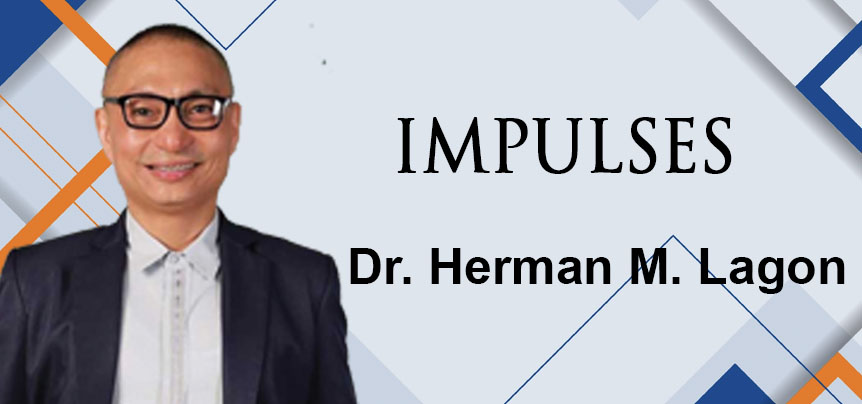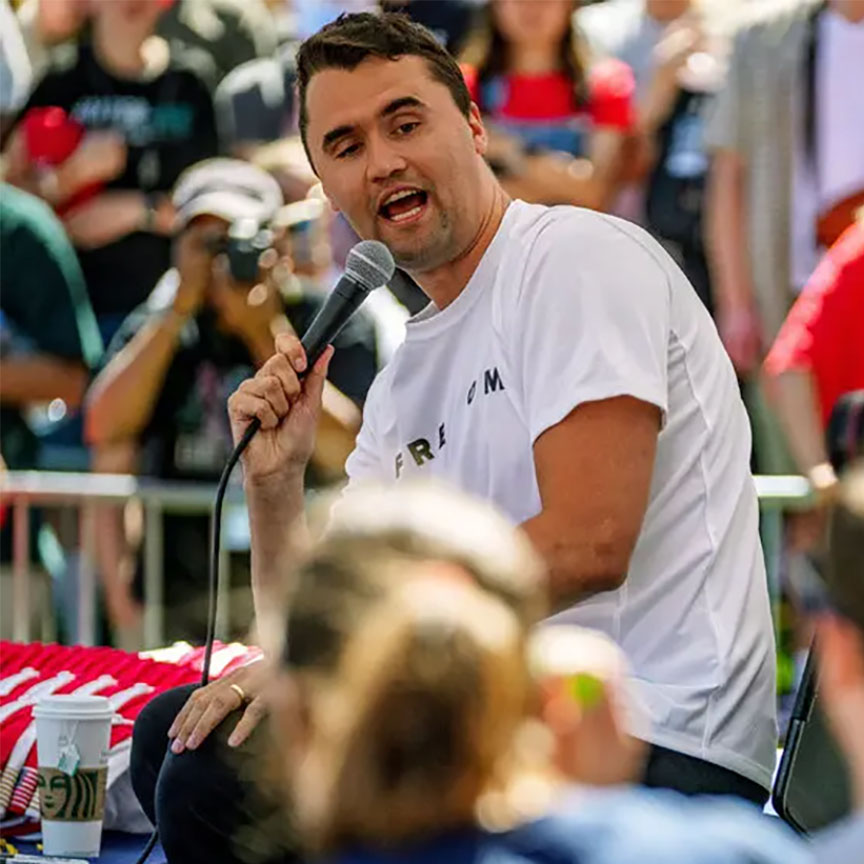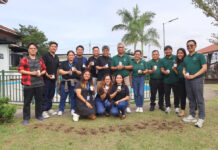THE news of Charlie Kirk’s killing at Utah Valley University felt both far and near. Far, because his brand of American conservatism often sat across the table from my own views. Near, because I had spent hours listening to his debates to understand how the other side thinks. I rarely agreed with his defense of Donald Trump or his takes on race and history. Still, he sometimes argued with enough clarity on inclusivity, limits of affirmative action, and the danger of extremism that I had to admit, quietly, that he had a point. For someone on the far right, he made people like me—left of center, allergic to dogma—stop, reflect, and consider nuance. That is a rare skill. His absence is a loss not only to his camp, but also to those of us who saw him as a worthy adversary.

It is easy to file him under “partisan warrior.” Yet that would miss something. He knew how to keep a crowd listening. Turning Point USA drew criticism, including from me, yet it pulled young people into civic talk where apathy often wins. I once watched him debate a student on transgender policy. It could have spiraled into insults. Instead, it ended with a handshake. In an age that rewards outrage, that small gesture felt big. In our classrooms here, that is the spirit we say we want—strong positions, steady tone, and the grace to shake hands afterward.
The responses to his death made that point clear. Leaders who seldom agree found the same words: no to political violence. That chorus from the Republicans, the Democrats, the democratic socialists, and those in between, may feel routine, but it matters. It reminds us that argument, not ammunition, keeps a democracy alive. The tragedy is not only the loss of a voice. It is the shrinking of a space where hard ideas could collide without bloodshed.
We are familiar with this kind of tension. Our own local debates often melt into name-calling on Facebook and TikTok. We saw it in the fights over K to 12, in jeepney modernization, in the back-and-forth on mass promotion, in quarrels about who should suspend classes during calamities. Local floods in Iloilo become instant blame games before serious talk on drainage, zoning, and climate risk even starts. We need the civic habit that political theorists call respect in disagreement—a discipline of listening without surrendering conviction. Oddly enough, Kirk helped me practice that habit. I did not have to accept his conclusions to admit that his way of engagement kept me at the table.
Choosing to listen to someone you resist is deeply human. In academic deliberations, I have seen teachers lock horns over grading. Voices rise, hands shake, yet the root is care for students. My role was not to declare a winner but to keep the talk honest and focused. Kirk, for all his heat, often argued to persuade rather than humiliate. He could be blunt and wrong. He could also listen and stay on the point. In a time when many cling to a script and ignore unwelcome facts, that mix is worth noting.
Data backs the need for serious adversaries. Surveys in the U.S. show most citizens find debate less respectful now, yet a large majority still say hearing the other side clarifies their own beliefs. We see the same here. During transport strikes, commuters curse delays, but listening reveals fathers and mothers fearing debt and job loss. When teachers resist automatic promotion of students, it is the ache of watching nonreaders pushed up a grade. Listening across lines does not mean giving up your stand. It means leaving the comfort of a silo.
Kirk’s death at 31 is not only a political tragedy but a moral test. If a man who lived by argument is silenced by a bullet in broad daylight, then freedom to speak is fragile. Laws can help, but habits matter more: to hear before hitting “post,” to question our own blind spots, to part ways with respect still intact. This is not mushy centrism. It is conviction with humility, firmness with proportion, courage without contempt.
In teaching debate, I ask students to argue the other side better than their opponent. That exercise forces empathy. Kirk, oddly, helped me do that. His take on DEI (Diversity, Equity, and Inclusion) grated, yet his push for merit exposed weak spots in my thinking. His defense of guns felt alien, yet his warnings against extremism rang true. He helped me locate myself—moderately progressive, allergic to absolutes. Imagine if our quarrels over federalism, ROTC, confidential funds, inflation, AI, electoral reforms, EJK, WPS, divorce, budget insertion, or flood control were conducted in that spirit: clear claims, fewer slurs, more steel-man arguments, and a handshake at the end. We would still disagree. We would also learn faster.
He was far from spotless. He pushed claims that did not hold, tied himself too tightly to one polarizing demagogue, and leaned into rhetoric that stung. Name me a public figure without a long ledger of pluses and minuses. What I choose to keep is a picture of a man who showed up, took hard questions, and traded reasons in schools, public squares, and the social media spaces that too often fall silent or explode. That is a useful model even for those of us who stood across from him.
A debate that ends in violence, troll attacks, or adversarial rhetoric, is like a class where students stop asking questions. Curiosity flatlines. Growth stalls. To honor someone like Kirk, strange as it sounds, is to keep the argument going—steady voice, sharp mind, open ears. It is to climb out of our mental, spiritual, and political silos, whether we sit in a barangay hall, a faculty meeting, or a Senate hearing. It is to agree to disagree, then show up again tomorrow.
If we can do that—here, not just there—we give our democracy a better chance. We also give our youth a better lesson: that the point of argument is not to crush an enemy, but to seek the truth together, one honest exchange at a time. That is a eulogy worth writing, and a habit worth living.| – TheMetroTimes.ph





















